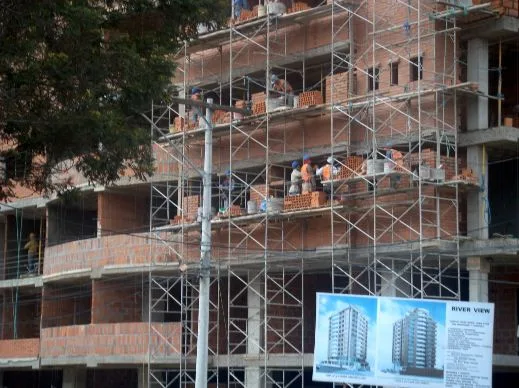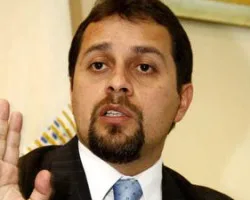What referendum issue could have the most impact on Ecuador expats?
By Esteban Cordero Balarezo and Sylvan Hardy
For Ecuadorians, there’s no doubt which is the most important question on tomorrow’s referendum ballot. It is number two which, if passed, will prohibit Rafael Correa from serving again as president.

Real estate agents say repeal of the “Ley de Plusvalia” will increase property sales.
The question asks voters if they want to return to the original language of the 2008 constitution that puts a two-term limit on presidents. At the end of his presidency, Correa pushed a constitutional amendment through the National Assembly, where his Alianza País party held a super majority, that allowed indefinite reelection.
Although the presidential reelection question is important for many expats, there is one that may have a more direct affect. It is question six, which asks voters if they want to repeal a 2016 law that slapped a tax of 75% on some real estate capital gains.
Officially, it is the Ley de Plusvalia (Law of Capital Gains), which also goes by the longer name of the Organic Law of Avoidance of Speculation of Value on Lands and Fixation of Tributes (in translation).
Intended to discourage land speculation that the Correa government claimed inflated real estate costs, putting home ownership out of reach for middle-income and poor Ecuadorians, the law was attacked by builders and real estate agents who said it would extend a construction and sales slump that began in 2014.
Ecuador experienced a real estate “bubble” in the early 2010s, as annual appreciation ran as high as 20 and 30 percent on some properties.
In Cuenca, real estate agents said the plusvalia law discourages foreign residents and Ecuadorians living overseas from buying, arguing that they are not the profit-driven speculators the government should be targeting.

Cuenca saw a building construction slump after 2013.
Surveys taken by the city of Cuenca and CuencaHighLife, showed that in 2011, more than 40 percent of permanent foreign residents owned their own homes. In late 2016, that number was less than 25 percent. Although real estate agents agree the drop in sales began long before the enactment of the new law, they say it guarantees, so long as it is en force, that the market will remain depressed and potential buyers will stay away.
Paul Granda, former Cuenca mayor and current Minister of Public Works for President Lenin Moreno, says he will vote for repeal because of the negative impact the law has had on the construction industry and the autonomy of municipal governments. “The law of capital gains was not focused correctly. Originally it was intended to end land speculation that was driving up costs for all buyers, and to make home ownership more affordable. In the end, however, it hurt everyone, including those it was supposed to protect, and infringed on the autonomy of local governments,” he says. “The intent was good but the result was not.”

Former Cuenca mayor Paul Granda
For Granda, the law lacked the participation of the municipalities. In his opinion, the law should have gone through the individual urban planning processes of each municipality. He adds that the law drove down building starts at a time it needed a stimulus. “This is significant since the construction industry contributes an average of 2.4 percent to the GDP,” he said.
For those who oppose changing the law, the argument is that it protects land grabs by those driven only by investment interests. The “no” side claims that “speculators” take advantage of the addition of infrastructure installed at taxpayer expense and pocket large capital gains without paying taxes on it. The result, they say, is that land and housing becomes unaffordable for many, especially those on small incomes.
Lilio Carbo, ex-president of the Consortium of Parishes of Cuenca (CJPC), said that voting “no” will help maintain land values and keep speculation in check. In his opinion, the construction industry is not suffering under this law but because of certain groups with economic interests. He says that the recession in the construction industry began long before the new capital gain law went into effect.
As it is written, the law increases the rate of the capital gains tax the second time a property is sold, with the proceeds going back to local government for infrastructure improvements.
The problem with this argument, says Granda, is that the amount of the extra capital tax is too extreme, beginning at 75 percent and dropping over time, affecting all property owners, not just those who buy for strictly investment purposes.
Susana Delgado, regional coordinator the Ministry of Urban Development and Housing (MIDUVI), says the law has created conflicts between the federal and local governments, since both have a role in valuing real estate. The law allows the federal government to take over local land valuation responsibilities if local governments do not act quickly enough. In the past, Delgado says, this was the domain of local government.
In her opinion, the law was well-intended but ended up usurping rights from local governments. She says voting “yes” and enacting a fairer law to control land speculation is the correct approach.
Some assembly members who are voting “no” on question six, such as Juan Cristobal Lloret of Cuenca, complain that many legislators who once favored of the law now reject it. LLoret says that the law protects abuses of land speculation, especially from those with economic power who have access to privileged information about infrastructure projects and use it to their advantage.
Like others, Lloret points out that other factors have affected the construction industry in recent years, including the fall of oil prices, the high value of the U.S. dollar, which Ecuador uses as currency, and high import fees on products builders depend on. He says that most of the decline in construction activity occurred before the new capital gains tax law was enacted.
If the “yes” wins on question six, president Lenin Moreno has 15 days to submit a new law to the National Assembly.
Three national polls indicate the question will pass by a wide margin and that the Ley de Plusvalia will be repealed.
Cuenca real estate agent Joaquin Crespo says he is seeing an uptick in sales activity since President Moreno included the question to repeal the plusvalia law on the referendum. “The recovery has begun and I believe it will pick up after the election,” he says. “It will be a slow recovery but it will be helped by more foreign buyers, including Ecuadorians who live out of the country, returning to market. I look forward to a bright future.”




















